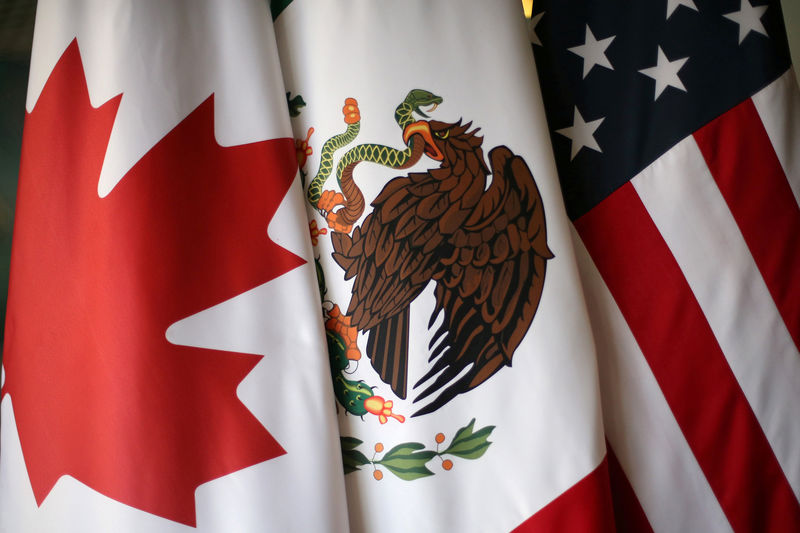By David Lawder
WASHINGTON (Reuters) - Mexico's government said on Wednesday progress was being made toward revising a new North American trade pact that will sharply reduce protections for biologic drugs, in what will be a setback for U.S. pharmaceutical companies.
Mexico approved the United States-Mexico-Canada Agreement (USMCA) this year, but U.S. ratification has been held up by Democratic lawmakers pressing the Trump administration for changes including steps on the drug protections.
After nearly four hours of talks with U.S. Trade Representative Robert Lighthizer in Washington, Mexico's top USMCA negotiator, Deputy Foreign Minister Jesus Seade, said he believed a deal was closer.
He told reporters two or three tough questions still needed to be resolved, floating the possibility of thrashing out an accord in the coming days.
"But there are things we can't accept," he said, adding that talks would continue on Thursday.
At the heart of discussions are U.S. efforts to subject Mexico to tougher controls of its labor standards.
Democrats have pressed to get stricter enforcement of new Mexican labor rules enshrined in the deal by proposing that inspectors supervise their implementation.
Mexico has firmly rejected that proposal, although President Andres Manuel Lopez Obrador said it could accept panels drawn from the United States, Mexico and a third country reviewing standards over an extended period.
Separately, in a column for Mexican newspaper El Universal, Seade said "very high protection" for biologic drugs would be "eased drastically" in changes being discussed for the USMCA.
Seade said he could not provide more details on the modifications for now. But U.S. Democratic lawmakers have described as a "giveaway" a USMCA provision that would grant 10 years of data exclusivity for makers of biologic medicines, saying it will lead to higher prices for consumers.
Kenneth Smith, who was Mexico's principal USMCA negotiator from 2017 to 2018, told Reuters that Democrats were pressing to eliminate biologic protections for drug makers.
If the USMCA provision were simply cut, rules could revert to the considerably thinner protections of the 1994 North American Free Trade Agreement (NAFTA), he said. Or, new language could be agreed as a compromise, Smith added.
Mexican business groups have bristled at the Democratic labor market plan as a bid to make the country less attractive to investment, which Lopez Obrador said Mexico would not accept.
In the column, Seade said there would be no inspectors.
The USMCA is due to replace NAFTA, which U.S. President Donald Trump threatened to scrap if it was not overhauled.
Seade said in his column that existing flaws in NAFTA's dispute resolution mechanisms would be fixed in the adjustments now being made to USMCA.
He told reporters in Washington he had held meetings through the weekend in Mexico with Lopez Obrador and business groups to tackle outstanding USMCA issues.

Speaking in Mexico City, Carlos Salazar, the head of Mexico's powerful CCE business lobby, said he was hopeful Seade could broker an agreement before Dec. 20. Failing that, there could still be a deal in early January, he added.